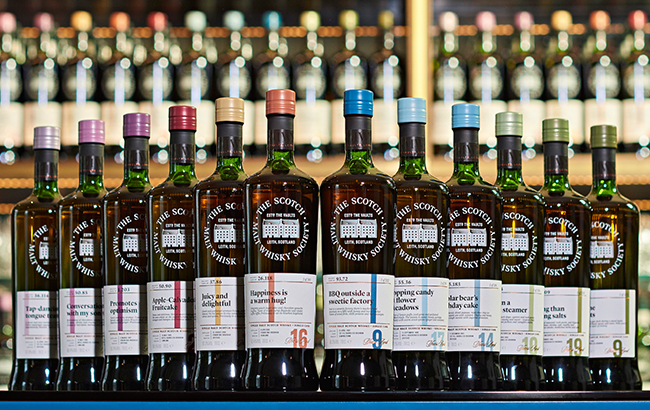The independent bottling sector can be confusing but very rewarding once understood. Many ‘indie bottlers’ have historically grown from whisky brokering roots where they would buy casks from all over Scotland and then sell them on to other whisky companies or blending houses. This is still a massive part of the industry but the world’s thirst for whisky has meant that many companies can diversify and sell product directly to the public through their own channels.
Independent bottling companies expand the whisky market greatly by making a larger selection of products available. These companies usually follow one of two tracks – they buy part-matured casks from the distilleries or send empty casks to a distillery to be filled. Then continue the maturation before carefully choosing when to bottle and release them to the public.
The result is a product that has all the original distillery character but that is also unique. It may be released at a different age or from a different cask type to that of the original distillery’s whiskies. The independent bottler has used their experience to create and new product and diversity for the consumer.
An independent bottler may also finish the spirit in a different cask to that of the original distillery, therefore creating a unique whisky. Sometimes, the independent bottlers will only buy a single cask from a distillery, therefore leading to a very limited quantity of final bottles. Generally, these bottlings offer good value by being priced similarly or cheaper than the original distillery bottlings and it is an excellent way to try different or rarer whisky.
Normally indie bottlings are released at their natural cask strength and are non-chill filtered and of natural colour. Many times they will be just a single cask or a very small batch of two or three casks – This means there is a finite amount of spirit and therefore finite number of bottles; when it’s gone, it’s gone. Many offer good value for money compared to distillery own or branded releases and offer an excellent way to sample and try different, rare or older whiskies
The majority of distilleries will be named on the independent bottlings along with the age or year of distillation, plus other key information. This can included maturation or finishing cask type, the number of bottles available, ABV strength etc. However, there are a few distilleries that insist they are not named for independent bottlings. In these cases the bottles will carry another name – for example, Glenfarclas is one such distillery and goes under various guises including Speyside’s Finest.
Names of good independent bottling companies to look out for include Adelphi, A. D. Rattray, Cadenhead’s, Compass Box, Douglas Laing & Co, Gordon & Macphail, Hunter Laing, Scotch Malt Whisky Society (SMWS), Signatory Vintage and That Boutique-y Whisky Company. Generally they can only be found via specialist whisky retailers, many of whom also run their own independent bottling schemes for their customers. Good examples include Abbey Whisky, The Green Welly Stop and The Whisky Exchange.
Did you know?
Independent bottlers are arguably the most traditional bottlers of Scotch whisky. Harking back to the days when whisky was sold to grocers and merchants before distilleries bottled their own stocks, these companies were distinctly separate entities that acquired stocks of whisky in casks to then be bottled and sold on.
Royal Mile Whiskies






